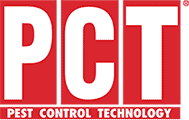One word describes what it takes to be ready for third-party audits and inspections – preparation.
When you partner with a commercial pest management service provider that has extensive experience with a wide range of third-party audit standards, is comfortable interacting with auditors and inspectors, and works with you year-around to stay ready, you will have peace of mind going into any audit.
“The key to a successful third-party audit involves a great amount of detail no matter which audit standard (AIB, BRC, SQF, etc.) you practice,’ says Mike Johnson, regional manager for Rottler Pest Solutions. “The suppliers food processors sell to look at audit scores and often use them as a basis for buying decisions. Successful audits not only equal food safety, but increased business as well.”
A poor or even worse failed audit, negatively impacts a company’s brand reputation with suppliers and potentially consumers, can lead to additional expenses to correct the issues, and can even cost a QA or plant manager his or her job.
What Causes A Poor Audit?
Johnson and his team of experienced technicians and inspectors have assisted clients with hundreds of audits and have identified two issues that can put a facility at a higher risk for a poor audit – poor documentation and lack of oversight and follow up.
Poor documentation practices are the number one failing of the audit process. Missing or poorly organized information will frustrate auditors and can lead them to believe if this element isn’t well-managed what is the rest of the facility like?
“Know your documentation inside and out, and make sure it is current,” says Steve Bopp, quality control manager for Rottler. “Review it regularly and be able to explain it to the auditor or inspector.”
Whether a facility maintains its information in an electronic logbook or binder, it must be up to date, complete and accessible to an auditor. A missing service report, license or material usage document can sink an audit.
“Rottler understands ‘the why’ behind the absolute need to ensure the integrity of the documentation that is presented,” says Johnson. “We provide value to clients by helping them with the documentation process and promising to keep their operation continuously audit-ready and open for business.”
Poor follow up when it comes to correcting conditions conducive to pests is one of the fastest ways to achieve a poor audit score. Rottler provides detailed recommendations to facility maintenance or cleaning crews on sanitation, structural or cultural items that need to be remedied to lessen the risk of pest activity.
When an auditor reviews a logbook and sees an open condition that has been on the books for months, it will raise a red flag. A condition that often gets written up in the audit process is failing to rodent (and pest) proof doors.
“When an auditor or inspector sees light under a door, they’re going to say something,” says Bopp. “Installing door sweeps is a simple and effective way to deter pests and avoid issues with auditors.”
Audits in the Time of COVID
The COVID-19 pandemic has changed the way certain elements of third-party audits are being performed.
Auditors are now using hybrid audits that involve remotely reviewing documents with facility managers and their pest management service provider (Rottler participates in third-party audit with all its food industry clients). And even though the auditor might not be sitting across the table from you, it is your responsibility to be prepared.
“Hybrid audits will be part of the landscape going forward but in-person visits will remain an important part of the process,” says Johnson. “Auditors can’t inspect a device virtually, and they need to see the area surrounding the plant and look behind doors to do the job correctly.”
Go Back to the Basics
Critically evaluate your facility to be sure you have strong foundational elements of food safety in place – sanitation, allergen control and GMP compliance. These are the areas auditors and inspectors are focusing on today. Look at any recurring problems/conditions in your facility and make sure you are getting at the root cause and not just treating the symptoms.
Commit to Training
Conduct refresher training both on your food safety practices and on how to prepare and manage audits and inspections, including updating inspection manuals. It is important to reinforce key themes and the importance of complying with GMPs daily. As the U.S. FDA implements FSMA, training will continue to be important to ensure that plant managers and employees understand what is expected of them.
If your company is looking for a pest management partner that goes the extra mile to design and deliver comprehensive pest management programs, call Rottler Pest Solutions at 636-249-1601 for a free quote or consultation.


